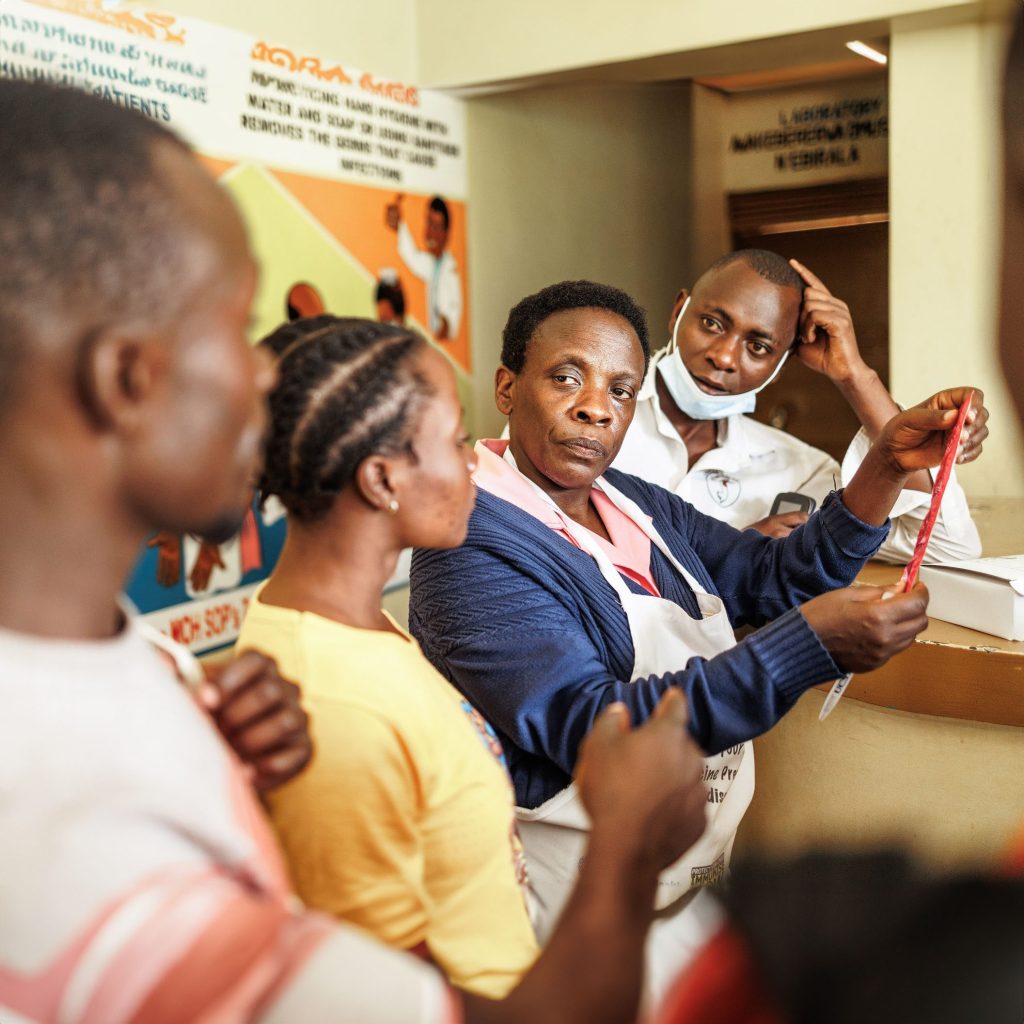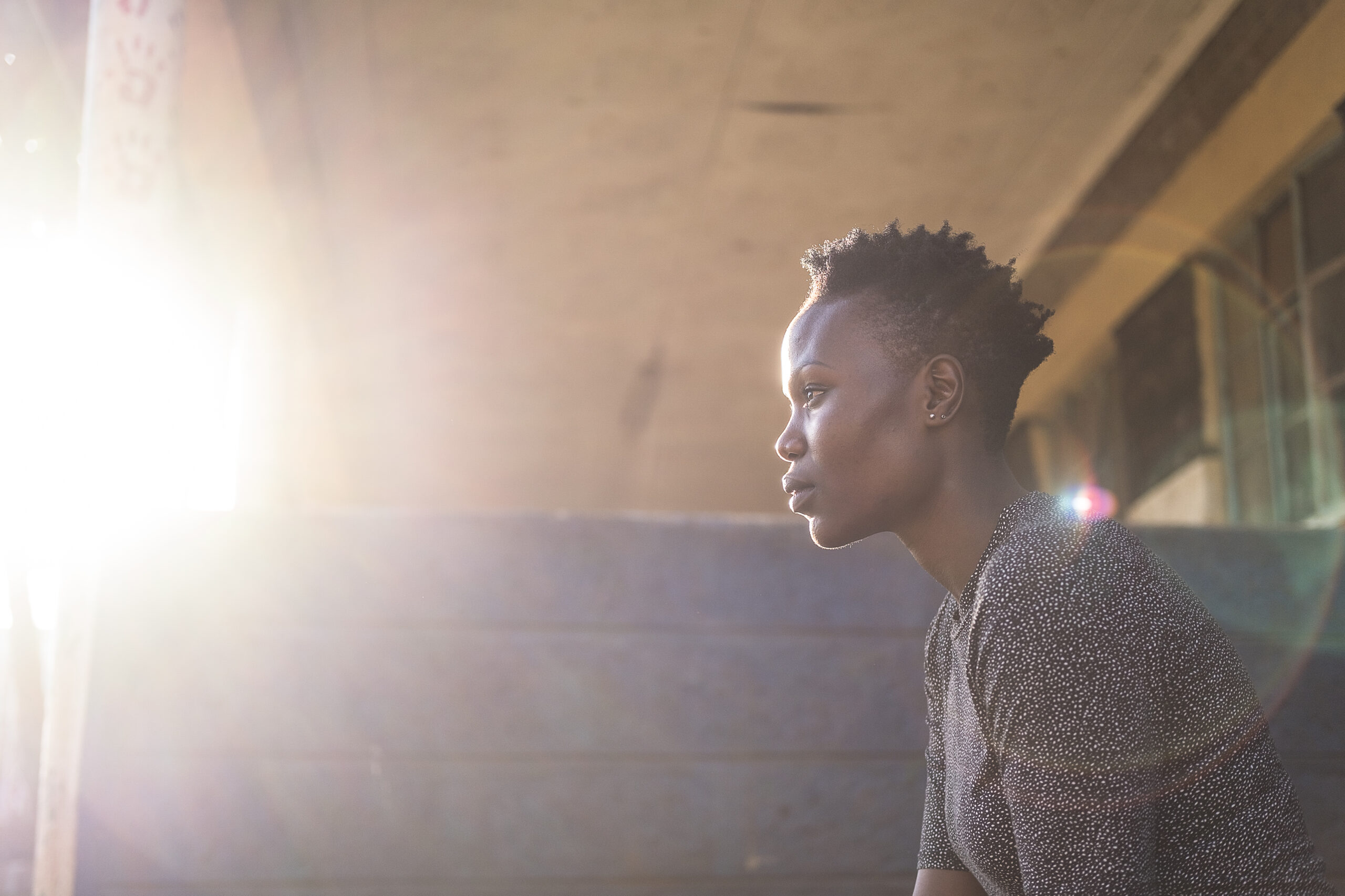
Sexual and Reproductive Health and Rights
Sexual and Reproductive Health and Rights (SRHR) are about making sure people have the information, care, and freedom they need to achieve physical, emotional, mental, and social well-being across all aspects of sexuality and reproduction.
Achieving SRHR includes protecting individuals’ rights
Bodily integrity, privacy and autonomy
Freely define thier sexual orientation and gender identity
Choose if and when to be sexually active, and choose sexual partners
Choose if, when and by what means to have children
Safe and plesurable sexual experiences
Live free from discrimination, coercion and violence
Challenges and barriers to achieving universal access to SRHR
Despite the progress made in past decades, many challenges persist for the realisation of universal access to SRHR, ranging from legal, political, cultural or economic barriers to health system limitations. Many people, especially in remote or underserved areas, do not have access to accurate and comprehensive information about sexual and reproductive health. Cultural barriers and taboos can prevent open discussions and restrict access to necessary services, particularly for women and LGBTIQ+ individuals. In many countries around the world, laws and policies limit access to certain reproductive health services, such as contraception and abortion. The cost of health services and lack of insurance coverage can make it difficult for many people to afford the care they need. This is especially challenging in low-income communities and countries, which also often struggle with limited resources, lack of trained professionals or facilities to provide comprehensive sexual and reproductive health services to all who need them.
Dive deeper
Factsheet (EN)
Positionspapier (DE)
257 million women worldwide have an unmet need for modern contraceptives
One in four women of reproductive age are unable to decide for themselves if, when, with whom and how many children to have. They do not want to get pregnant, but have no means of contraception. According to a 2018 study by the Guttmacher Institute, 24 per cent of women of reproductive age in sub-Saharan Africa have an unmet need for modern contraception. In West Africa, the figure is 36 per cent.
121 million unitended pregnancies every year
In developing countries, around 43 per cent of all pregnancies are unintended. One of the main reasons for this is that one in four women there cannot use contraception, even if they would like to.
13 Million teenage pregnancies
13 million children are born to women under the age of 20 worldwide. More than 90% of these births are to women living in developing countries. Complications of pregnancy and childbirth are the leading cause of death among women aged 15-19 in these regions.
The role of international cooperation
Continued international support and official development assistance (ODA) remain crucial to speed up progress on achieving SRHR for all and to avoid further setbacks as experienced during the COVID-19 crisis and to counter the growing backlash at women’s rights and gender equality globally. ODA can fill persisting financial gaps, ensuring that essential services like modern contraceptives, maternal health care, and sexual education are accessible to all, particularly in underserved communities. ODA and policy dialogue can also be directed towards the creation of legal frameworks that support SRHR. This helps ensure that rights-based approaches to sexual and reproductive health are embedded in national policies, promoting sustainability and local ownership of SRHR initiatives.
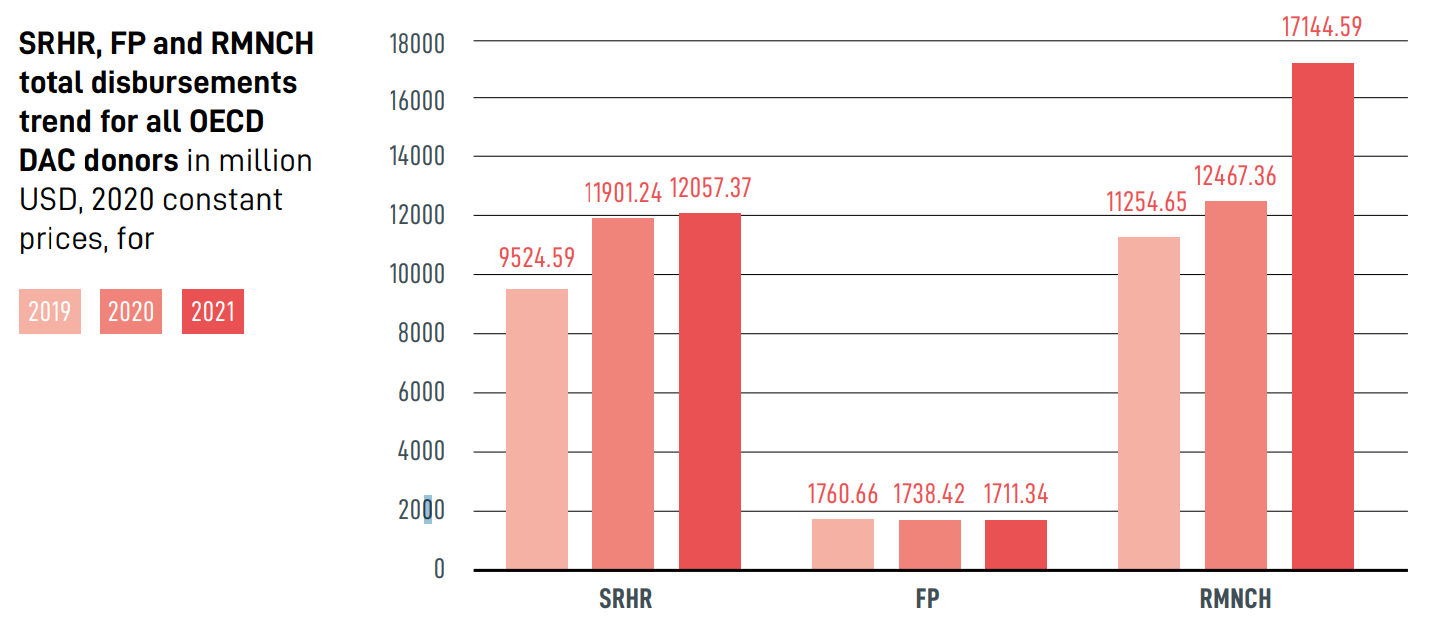
The importance of SRHR advocacy
Both Germany and the EU institutions are among the top five global public donors of official development assistance (ODA). When looking at how much of this ODA is spent on promoting SRHR, Germany and the EU institutions only rank 15th and 22nd respectively. There is thus significant room for improvement and need for continued advocacy.
Our advocacy teams in Berlin and Brussels, engage with the German government and the European Union (EU) institutions with the aim of driving policy and financial commitments for the promotion of SRHR, especially as part of their external action. What we bring to our advocacy:
We are part of the Countdown 2030 Europe consortium, made up of 15 leading European non-governmental organisations, seeking to increase European SRHR funding in international cooperation and strengthen political support for sexual and reproductive freedom worldwide.
Report
Reality check:
International donor support to SRHR
The Donors Delivering for SRHR report is an annual DSW publication analysing and ranking the latest data available to track the disbursements of members of the Organisation for Economic Co-operation and Development (OECD)’s Development Assistance Committee (DAC) to SRHR, reproductive, maternal, newborn and child health (RMNCH), and family planning (FP), as part of their Official Development Aid (ODA).
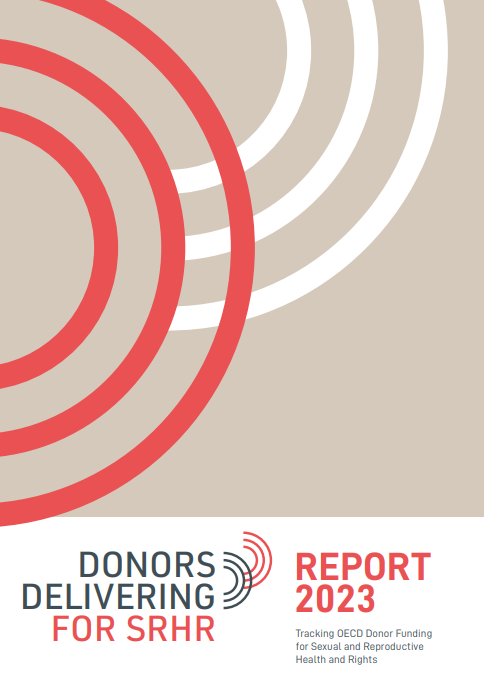
Donors Delivering for SRHR report
Edition 2023
The full range of SRHR interventions
Comprehensive Sexuality Education (CSE)
Access to modern contraception services and information
Access to antenatal and postnatal care, and safe services for childbirth
Safe abortion services, and treatment for complications arising from unsafe abortion
HIV and STI prevention and treatment
Services for prevention and detection of SGBV (sexual and gender based violence)
Reproductive cancer prevention, detection and management
Information, counselling, services for subfertility, infertility, sexual health wellbeing
Six reasons for
Investments in SRHR
Key Publications
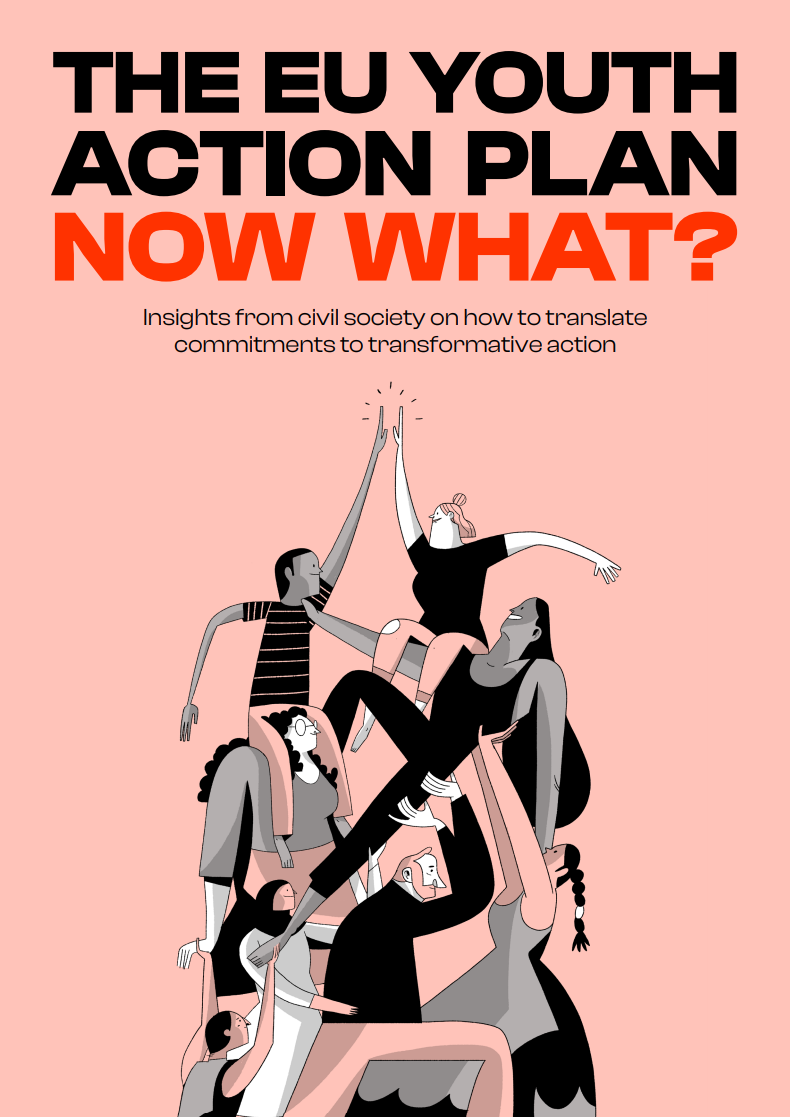
The EU Youth Action Plan.
Insights from civil society on how to translate commitments to transformative action
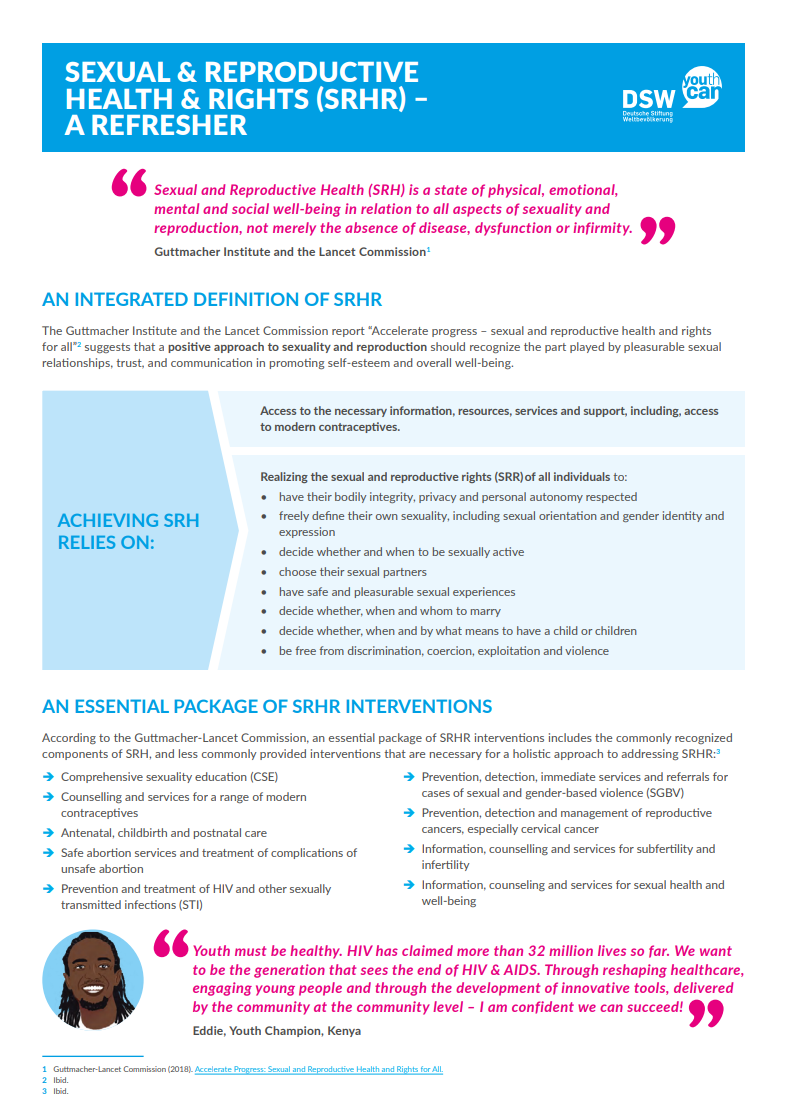
SRHR overview
Short overview with key facts about SRHR
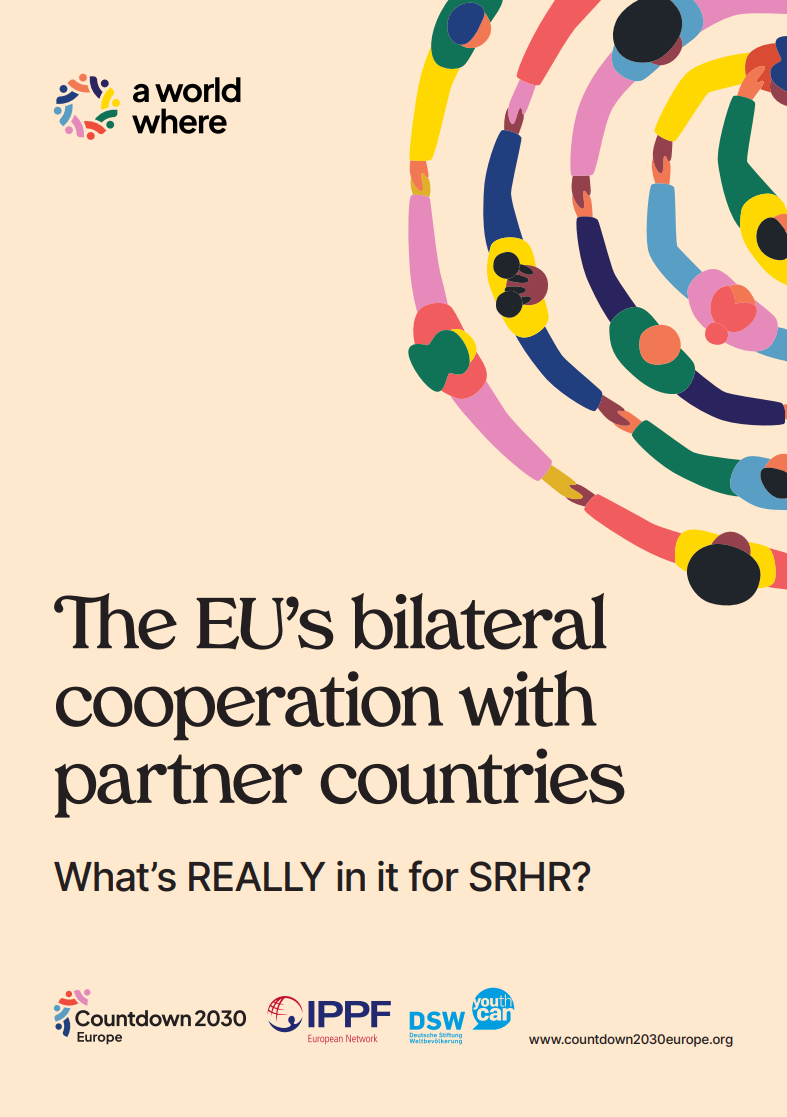
The EU’s bilateral cooperation with partner countries
What’s REALLY in it for SRHR?

